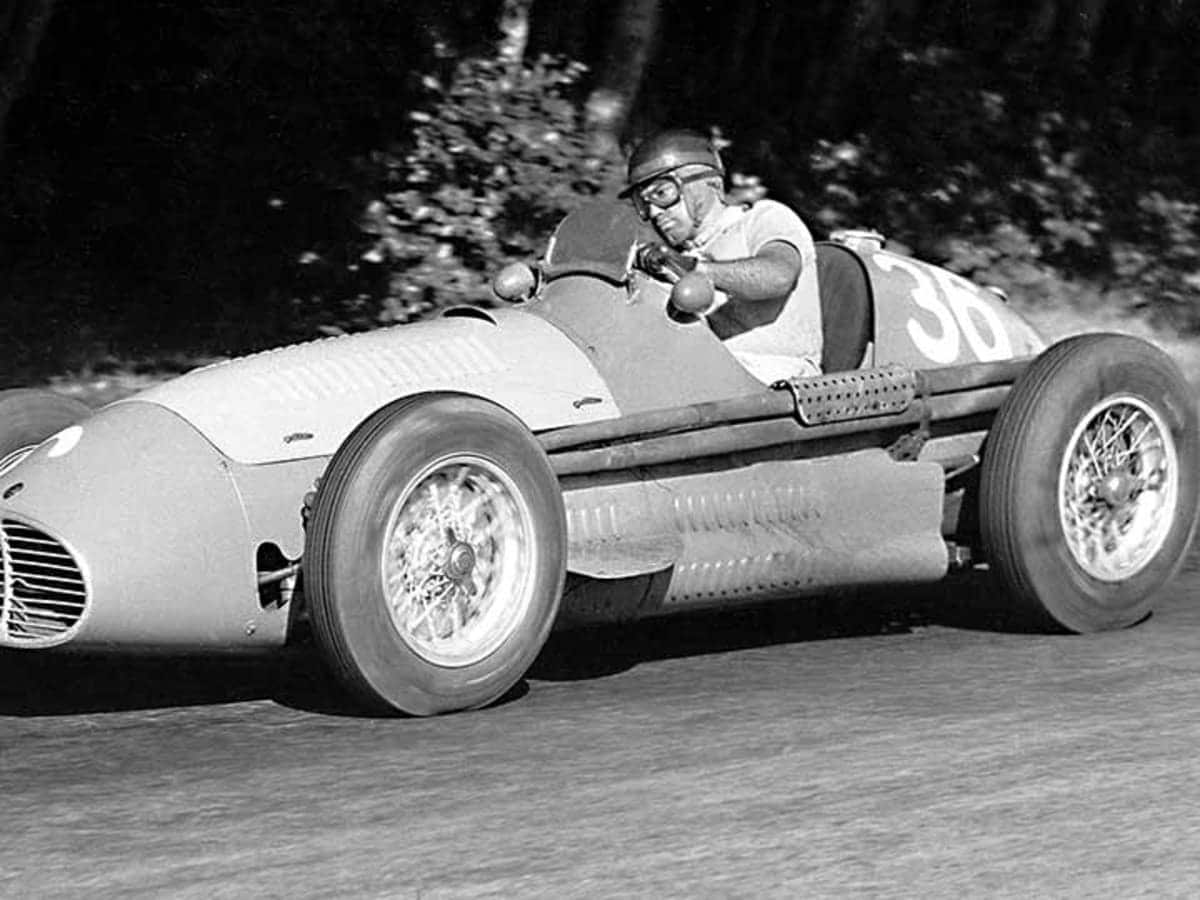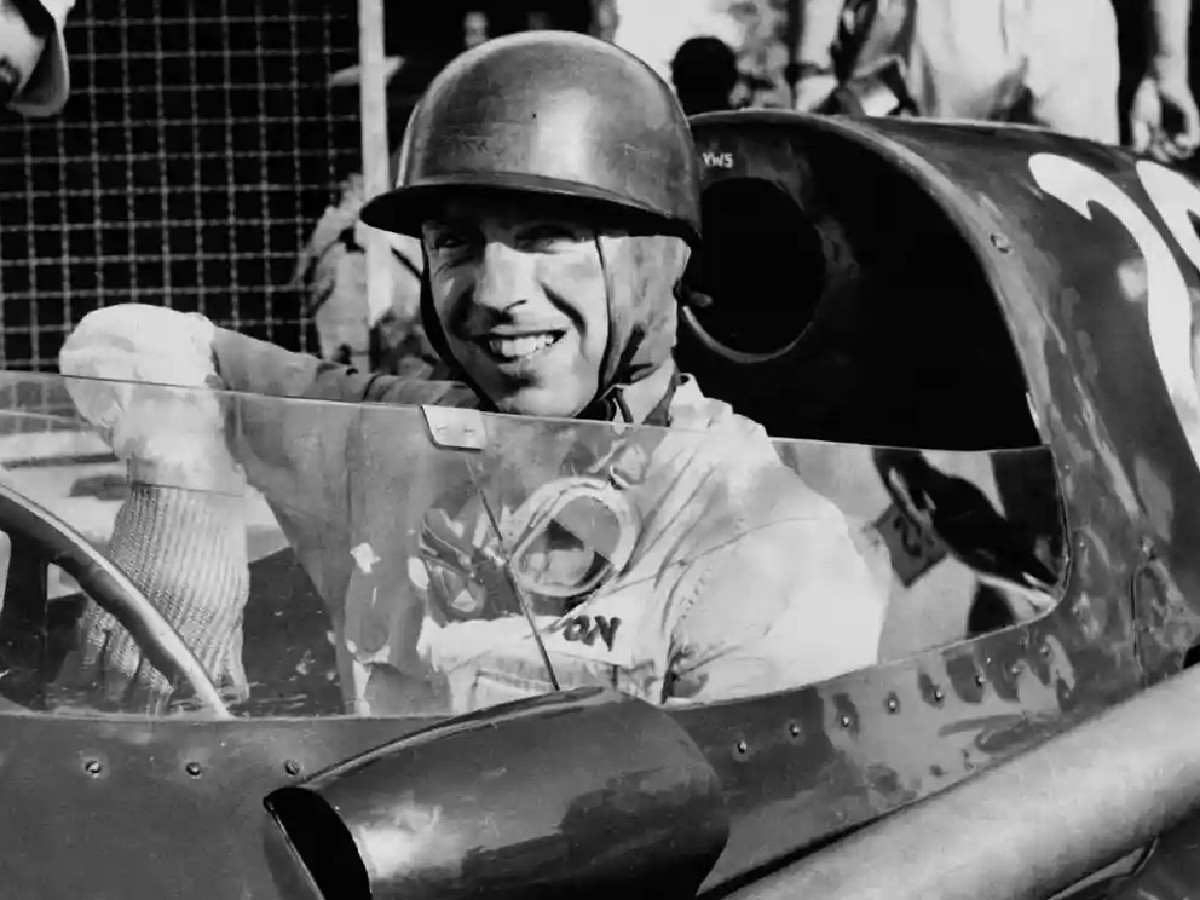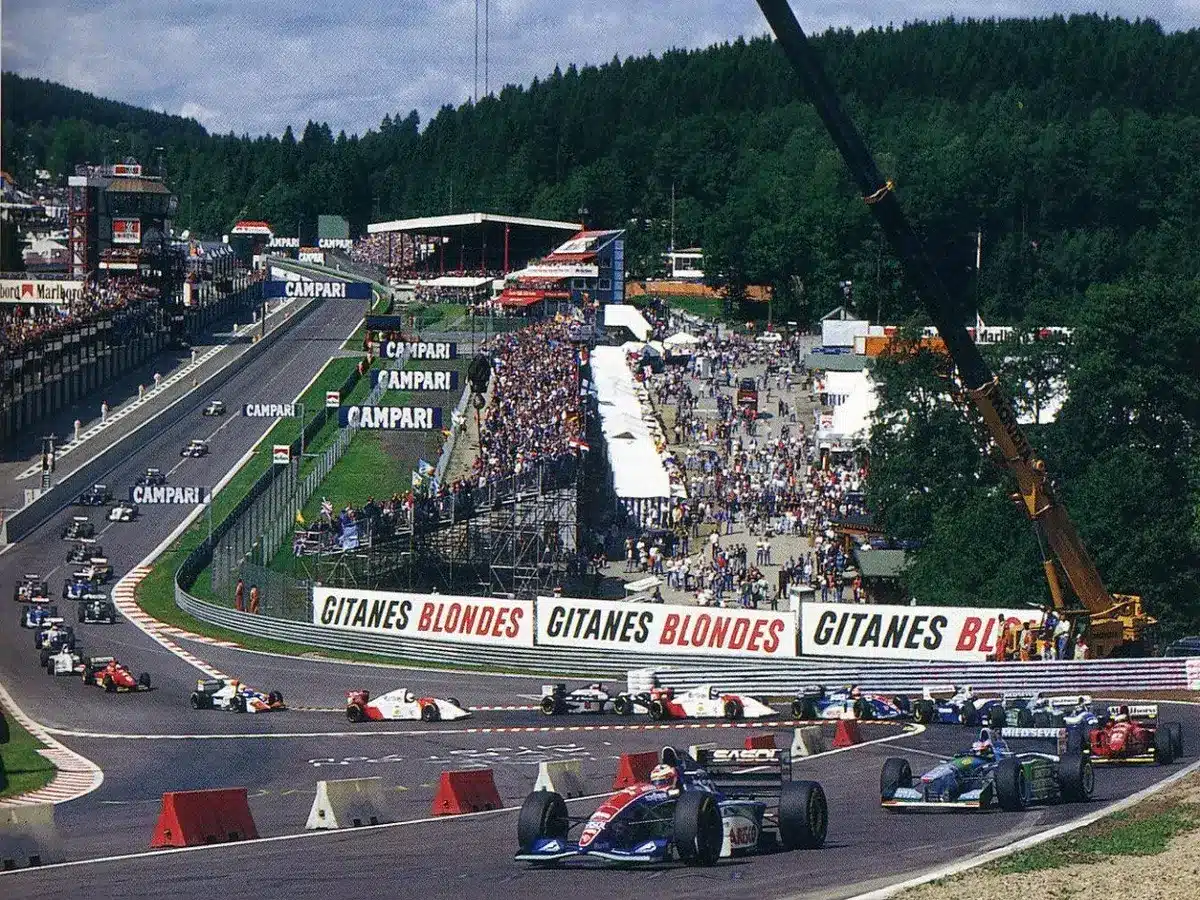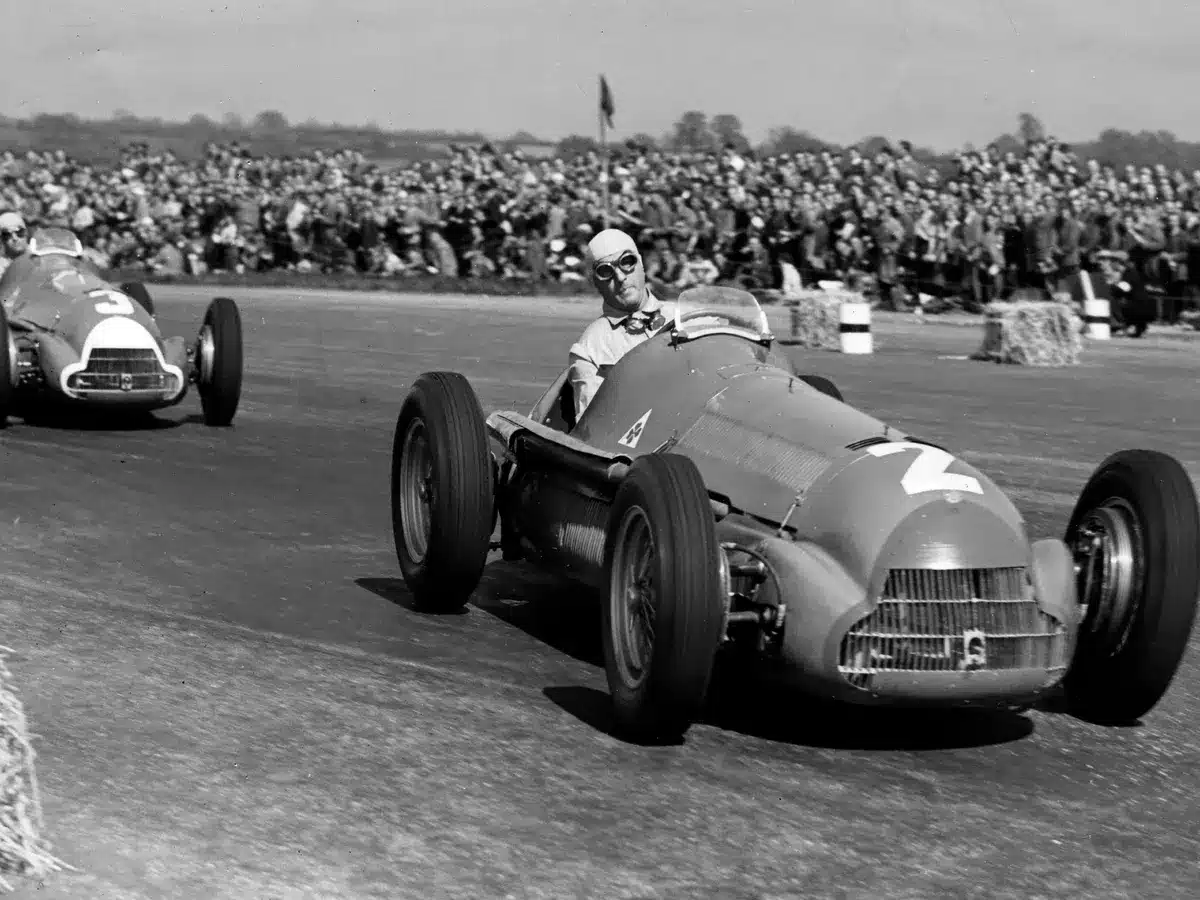Formula One premiered as motorsport’s top again in 1950, holding its first-ever season. The sport has progressed immensely since then, having witnessed numerous iconic moments. While many moments contain drivers dominating races or executing breathtaking overtakes, several uncommon occurrences have also occurred. One such instance may be drivers taking victory at an F1 Grand Prix without having led a lap your complete race, perplexing because it sounds.
These drivers didn’t cross the end line first or lead any particular person’s lap throughout the race. Nevertheless, circumstances aligned in their favor; they usually emerged because the winners when the checkered flag waved. Despite not displaying dominance on race day, these drivers secured most factors and earned the title of Grand Prix winner. Such cases remind the world that Formula 1 may be unpredictable and that success can come unexpectedly.
The tales behind how these seven drivers managed what appears to be an inconceivable feat can be explored, given {that a} typical F1 race victory within the modern-day is signified by domination all through the weekend classes and main nearly all of the race on the monitor.
Here is the checklist of drivers who gained a race without main a single lap
1. Luigi Fagioli – 1951 French Grand Prix
The first occasion of a driver profitable in an F1 GP without main a single lap occurred throughout the second-ever season because of the sport’s inception. Luigi Fagioli, driving for Alfa Romeo, had a comparatively meager qualifying session, beginning the race from solely P7 on the grid. Meanwhile, his teammate Juan Manuel Fangio had a formidable qualifying efficiency, securing the pole place. Alfa Romeo was an outstanding entity, inclined to victory again, opposite to at present.
Luigi Fagioli (Credits: The Guardian)
At the beginning of the race, Juan Manuel Fangio held the lead but quickly encountered mechanical points. As a result, the crew determined that Fagioli would relinquish his automobile to their star Fangio through a pit cease. Fangio continued the race and, in the end, emerged because of the winner of the French Grand Prix. However, due to the shared driving association, Fagioli was additionally credited with the victory, though he crossed the end line in P11. Notably, Fagioli turned the oldest driver to win an F1 race, a small comfort.
Unfortunately, this incident didn’t sit effectively with Fagioli, famed for his fiery temperament, and he determined to retire from F1 after the race occasions. The circumstances surrounding the shared victory and the crew’s choice influenced his selection to leave the game.
2. Luigi Musso – 1956 Argentine Grand Prix
Once again, maybe coincidentally, the second prevalence of a driver profitable a race without main a lap entails Juan Manuel Fangio. During the 1956 Argentine Grand Prix, Luigi Musso was credited with a win after sharing his automobile with Fangio, his teammate. Both drivers have been a part of Scuderia Ferrari, with Fangio beginning the race from pole place and Musso from P3 on the grid. During the race’s early phases, Fangio encountered mechanical points and was compelled to retire.

In response, Ferrari referred to Musso to the pits and instructed him to give up his automobile to Fangio. Musso willingly complied with the crew’s order. Ferrari secured the victory from a decided efficiency by Fangio and a collection of unlucky mechanical failures for different race leaders. Each Fangio and Musso have been awarded the win, and the teammates shared the factors.
This race showcased the teamwork and camaraderie inside the Scuderia Ferrari crew, as Musso selflessly relinquished his automobile to Fangio, in the end contributing to their joint success within the Grand Prix.
3. Tony Brooks – 1957 British Grand Prix
The 1957 British Grand Prix proceedings witnessed Tony Brooks, and Stirling Moss share a victory, signifying the third and remaining time such a prevalence occurred in the Formula 1 historical past. Brooks began the race from third place, whereas his teammate Moss started from the pole. Brooks was nonetheless recovering from priorly sustained accidents, whereas Moss demonstrated his prowess by securing a powerful beginning place.

However, Moss encountered a mechanical downside that necessitated a pit cease. Sensing that he won’t win the race, Tony Brooks returned to the pits and handed his equipment to Moss. Motivated and unwaveringly decided, Moss charged again onto the monitor, fiercely battling to say the highest spot. With mechanical failures and incidents among the many main opponents, Moss seized the lead and in the end secured a memorable victory in his dwelling race.
As a result of sharing the automobile and their mixed efforts, Moss and Brooks have been awarded the joint victory, solidifying their names within the annals of Formula 1 historical past.
4. Niki Lauda – 1978 Italian Grand Prix
German legend Niki Lauda is famous for his immense feats as an F1 driver. However, this race win is a lesser-known achievement of his. Despite crossing the end line first, Italian Mario Andretti’s victory on the race wouldn’t be formally credited to him. Andretti, representing Ferrari, had flawless efficiency throughout the weekend, ranging from pole place to setting the race’s quickest lap.
Niki Lauda (Credits: The Guardian)
Tragically, an extreme accident occurred on the very first lap, ensuing within the eventual demise of Ronnie Peterson. As a outcome, the race was red-flagged earlier than the leaders accomplished a full lap. The race was restarted later within the night with a lowered race distance. Andretti and Gilles Villeneuve fought fiercely for the highest place during the restart. However, each drivers have been penalized with a one-minute time penalty for leaping the beginning. Niki Lauda, who held onto the third place, remained steadfast.
Mario Andretti crossed the end line first, adopted by Villeneuve and Lauda. However, due to the penalty, when the extra time was added to Andretti and Villeneuve’s race instances, Lauda discovered himself in first place, in the end securing the victory.
5. Alain Prost – 1982 Brazilian Grand Prix
Frenchman Alain Prost is likely one of the most revered drivers to ever get behind the wheel of an F1 automobile. But his race victory wasn’t taken by his overwhelming prowess on the helm. The then-Renault driver emerged because the winner of the 1982 Brazilian Grand Prix as a result of the disqualification of the highest two drivers. Prost began the race in pole place however had a sluggish begin and was overtaken, relinquishing his lead earlier than the tip of the primary lap. Despite his most vigorous efforts, he couldn’t regain the lead throughout the Jacarepagua race.
Alain Prost(Credits: Autosport)
The home-favorite driver Nelson Piquet Sr., driving for Brabham, and Keke Rosberg, driving for Williams, surged forward and crossed the end line in first and second place, respectively. However, each drivers have been later disqualified for failing to satisfy the minimal weight necessities. As an outcome, the victory was awarded to Alain Prost. The race demonstrated how a sudden flip of occasions and disqualifications might influence the result in F1.
Such are the intricacies of the game, the place even the burden of your equipment following a hard-fought race can undo all the exhausting work put in through the race weekend.
6. Elio de Angelis – 1985 San Marino Grand Prix
Elio de Angelis( Credits: The Guardian)
The San Marino Grand Prix of 1985 is usually remembered as probably the most peculiar races in F1 historical past. It was marked by several incidents, accidents, engine failures, and drivers operating out of gasoline. Just three years after his fortunate victory below the identical circumstances, Alain Prost was disqualified from the San Marino Grand Prix for failing to satisfy the minimal weight necessities, resulting in a significant change within the race’s consequence.
As the race neared its conclusion, the favorite Ayrton Senna ran out of gasoline, relinquishing the result in Stefan Johansson. However, Johansson additionally skilled the identical misfortune and ran out of gasoline on the identical lap. This flip of occasions allowed Alain Prost to cross the end line first, adopted by Elio de Angelis, Patrick Tambay, and Thierry Boutsen. Notably, Boutsen ran out of gasoline simply earlier than the end line however managed to push his Arrows-BMW automobile throughout to finish the race.
However, Prost’s disqualification due to weight discrepancy altered the ultimate outcomes. As a result, Elio de Angelis was credited with the victory, marking the second and remaining win of his Formula 1 profession. The race showcased the unpredictable nature of F1, with unexpected circumstances and disqualifications reshaping the result.
7. Damon Hill – 1994 Belgium Grand Prix
Former world champion Damon Hill is the final driver to win without a lap throughout the race. In the 1994 Belgium Grand Prix, eventual world champion Michael Schumacher was disqualified for violating the principles associated to the aerodynamics of his car. Starting from second place, Schumacher swiftly overtook pole-sitter Rubens Barrichello on the primary lap to say the lead.
Damon Hill (Credits: Motorsport Week)
Although Michael Schumacher spun off the monitor early within the race, he managed to cling to his place on the entrance. Driving for Williams, Damon Hill maintained a strong tempo and completed the race in second place behind Schumacher. However, the race stewards found that the skid block beneath Schumacher’s automobile exhibited extreme put on, resulting in his eventual disqualification. The skid block was necessary for all automobiles and was launched two races earlier than the Belgium Grand Prix.
Its objective was to boost the automobiles’ journey top and mitigate some great benefits of floor results. According to the laws, a most put on of 1mm on the skid block was allowed. Any put on past this restrict would outcome within the journey top being too low, offering the crew with an unlawful aerodynamic benefit. Despite Benneton’s subsequent enchantment that the wear and tear resulted from Schumacher’s spin, the choice was upheld as a result of put on sample, and the victory was awarded to Damon Hill. The incident highlighted the importance of adhering to technical laws in Formula 1 and the next influence on race outcomes.
Has a driver ever gained an F1 race without main a single lap?
Seven drivers have gained races with out main a single lap within the historical past of f1. Some gained as a result of the winner was disqualified, whereas others are the win with their teammates.
Can an F1 driver win a race with out main any laps?
It’s potential. Either the motive force overtakes the race chief on the ultimate lap to win or will get the win after the winner’s disqualification.
Who is the final driver to win an F1 race without main any laps?
Damon Hill is the final driver to win an F1 race without main a lap. His win got here in within the 1994 Belgium GP.

